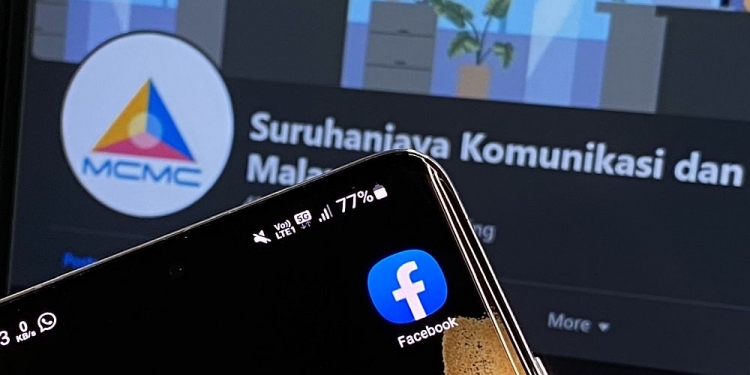With online scams getting out of hand on social media, Communications and Digital Minister Fahmi Fadzil recently called on the Malaysian Communications and Multimedia Commission (MCMC) to take faster and tougher action. As we’ve reported extensively, Facebook is a cesspool of scams as it allowed scam ads to run on its platform without basic checks. They have also not taken swift action when the ads were reported by users, allowing scammers to continue their activities which cause financial losses to victims.
We’ve followed up with the MCMC if they have contacted Meta to expedite the removal of identified scam ads. Here’s their response to us:
MCMC has reached out to Meta on the matter, and they have responded.
Meta has existing mechanism and is also exploring other mechanism to prevent such activities from happening again. Meta will be updating YBM on 12 Jan.
-Malaysian Communications and Multimedia Commission
Prior to this, the MCMC has not issued a public statement about the recent scam ads on Facebook. In contrast, the commission had acted quickly to demand TikTok to explain the appearance of May 13 videos which were also sponsored on their platform. Eventually, TikTok took action and removed the offending videos the next day.
Kenyataan Media
— MCMC (@MCMC_RASMI) November 30, 2022
TIGA (3) KLIP VIDEO AMARAN RUSUHAN 13 MEI BERBAYAR: MCMC DAN PDRM TELAH PANGGIL TIKTOK BERI PENJELASAN. pic.twitter.com/t5KmBaMi7Z
The explanation that Meta has an existing mechanism to prevent scam activities and is exploring other mechanisms isn’t good enough as we continue to see scam and gambling ads popping up on their platform. So what happens between now and 12th January 2023? Lately, there’s a rise of scam ads misusing local bookstore brands offering “free books” and the ads are linked to a WhatsApp number to continue the conversation with the victim.
Meta which makes large revenues from digital advertising should be held accountable for approving ads that misrepresent and impersonate local Malaysian brands and titles, which are aimed at scamming Malaysians. Even after an ad is reported, Meta is not serious about taking action and the scam ads continue to run even days after it was widely reported.
If Meta cares about user safety, they should have formed a local-based team to review all ads that are targeted at Malaysians. If a report is made, immediate action must be taken within 24 hours. The longer the scam ads run, Meta makes even more revenue and there’s a higher risk of more Malaysians becoming victims to scam activities.
As highlighted by Fahmi Fadzil, scams are a potential security risk as the funds can be channelled into the black economy. The funds can be used to buy drugs or weapons which poses a national security risk. He shared that his own mother was a scam victim who have lost RM75,000 from her Tabung Haji account.
Related reading
- Social Media scams getting out of hand, Fahmi Fadzil calls on MCMC to take faster, tougher action
- PDRM and MCMC want TikTok to explain sponsored May 13 videos
- Facebook allows scam ads claiming to offer Teh Hong Piow’s book for free
- Kinokuniya Malaysia warns of fake Facebook pages scamming users with “free books”







